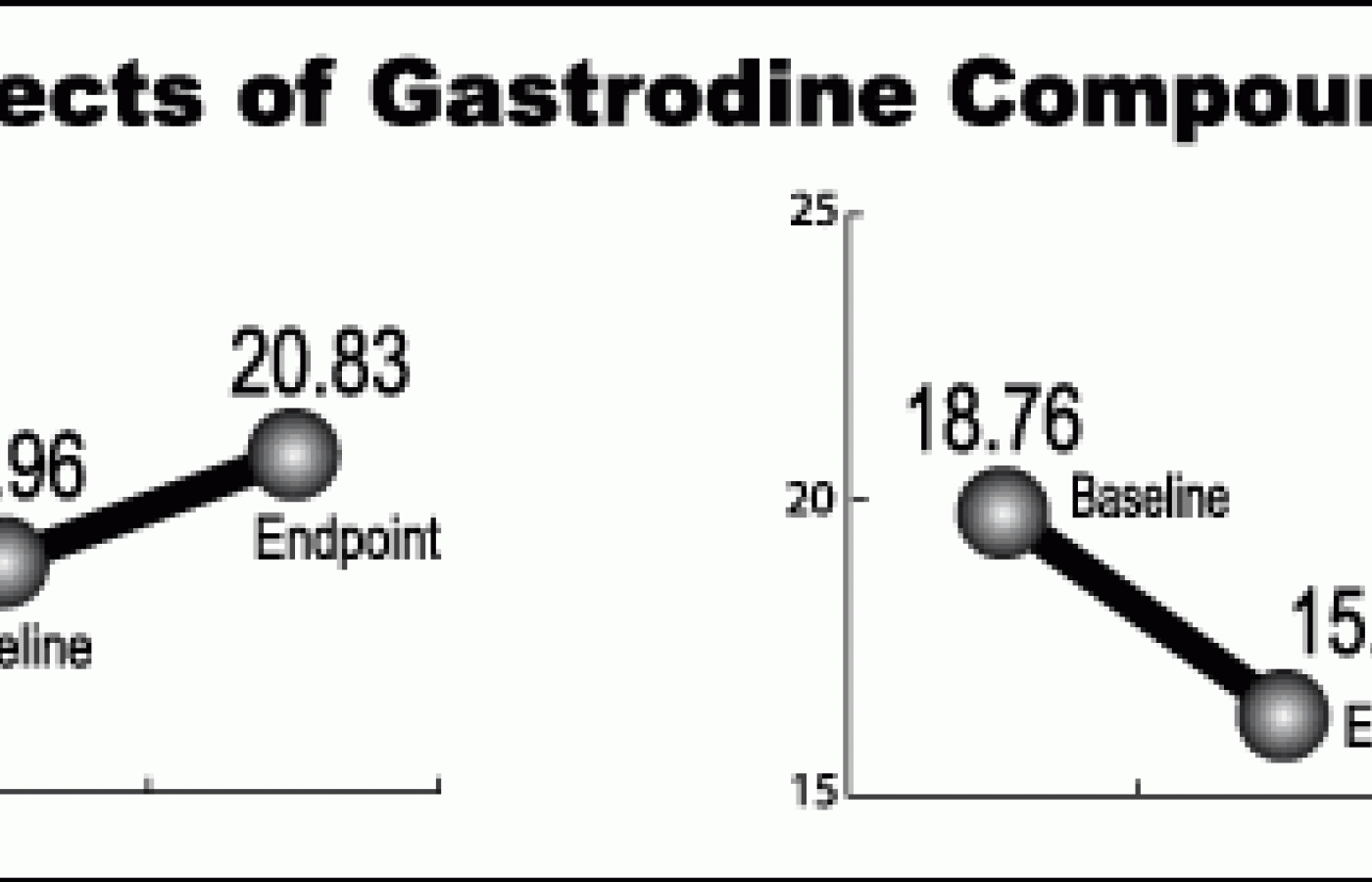The most important relationship I seek to nurture in the treatment room is the one a patient has with their own body. We live in a culture that teaches us to override pain, defer to outside authority, and push through discomfort. Patients often arrive hoping I can “fix” them, but the truth is, we can’t do the work for them. We can offer guidance, insight and support, but healing requires their full participation.
Herbal Extract Improves Mental Function in Stroke Patients
Between 1 percent and 3 percent of the world's adult population suffers from vascular dementia, making it the second most common form of dementia behind Alzheimer's disease. It occurs when small blood vessels in the brain become diseased or cease function, and can be caused by a large stroke or a series of smaller strokes. Depending on the severity of the condition, vascular dementia can cause problems with one's memory, behavior and cognitive abilities. Advanced cases can leave a person unable to work, or to carry out everyday tasks such as bathing, cooking or dressing.
In China, one of the herbs being studied for the treatment of vascular dementia is gastrodia (gastrodia elata blume), a type of orchid native to east Asia. Gastrodia has been a part of traditional Chinese medicine for centuries. It was first mentioned in the Shennong Bencao Jing more than 1,900 years ago, and has traditionally been used to treat headaches, dizziness, vertigo, and related conditions, and to improve circulation.
In research presented at the American Heart Association's Second Asia Pacific Scientific Forum in Honolulu, Hawaii this summer, Dr. Jinzhou Tian, director of the Beijing University of Chinese Medicine Institute of Geriatrics, delivered the results of a trial showing that an extract derived from gastrodia tuber (gastrodine) was effective in improving memory, language, and other cognitive functions in certain types of vascular dementia patients. Patients taking the extract also experienced significant improvements in behavior and personality scores, without the side-effects associated with most pharmaceuticals.
In the study, conducted at the Beijing Bongzhimen Hospital, Dr. Tian's team identified 120 stroke patients diagnosed with mild-to-moderate vascular dementia of at least three months duration. All of the patients were assessed for vascular dementia at the beginning of the trial, and divided into two groups. One group (70 patients) received a gastrodine compound granule containing 2.6 milligrams of gastrodine, dissolved in hot water and taken orally. The second group (50 patients) received a drug combination used to treat stroke patients in China called Duxila, also dissolved in hot water and administered orally. The extracts were taken three times a day for 12 weeks.
The researchers utilized two tests were used to evaluate the patients' progress: the Mini-Mental State Exam (MMSE), which measures memory, orientation, calculation and language skills, and the Blessed Behavioral Scale (BBS), which measures behavioral characteristics, including personality, activities of daily living and overall behavior. Test scores were taken at baseline and endpoint for comparison.
Overall improvement rates were nearly identical for both groups. Thirty-six gastrodine patients (51.4 percent) showed "much improvement" or "some improvement" in their dementia symptoms as determined by the researchers; the improvement rate was slightly higher in Duxila patients (52 percent).
In the gastrodine group, there were significant increases in the average MMSE score at the end of the study compared to baseline. In the areas of memory, orientation, calculation, and language, the MMSE showed similar improvement in both groups.
When analyzing the BBS scores, however, the scientists discovered significant differences in patients taking gastrodine versus those in the Duxila group. Behavioral scores dropped an average of more than three points per patient in the gastrodine group, from 18.76 at baseline to 15.72 at the study's conclusion. According to the researchers, a BBS score equal to or greater than 16 is considered abnormal; scores below 16 are normal. In comparison, the average BBS score in Duxila patients remained above normal at endpoint (17.08) The gastrodine patients also suffered fewer side-effects.*
In a press release given during the meeting, Dr. Tian theorized that gastrodine may have increased cerebral blood flow in the dementia patients, resulting in the improved cognitive and behavioral scores. They also admitted that a longer study - one lasting a minimum of six months - should be conducted to determine the clinical effectiveness of the gastrodine extract and its role in the treatment of vascular dementia.
Given the positive results shown in their initial trial, however, the researchers added that further research into herbal therapies for vascular dementia is clearly warranted.
"Chemical drugs, such as cholinesterase inhibitors, are effective in the treatment of cognitive and memory function in dementia, but these drugs are expensive and have side-effects," Dr. Tian said. "This study might result in doctors considering the use of herbal medications, such as gastrodine compound granules, to supplement the treatment of mild and moderate cognitive impairment in primary care for the elderly with cerebral ischemic damage."
References
- Tian J, Zhu A, Shi J, et al. A double-blind, randomized controlled clinical trial of compound of gastrodine in treatment of mild to moderate vascular dementia in Beijing, China. Presented at the American Heart Association Second Asia Pacific Scientific Forum, Honolulu, Hawaii, June 10, 2003. Abstract # P177.
- New herbal drug therapy effective in treating vascular dementia. Eurekalert press release, June 10, 2003.
* Average MMSE scores at baseline and endpoint, and baseline BBS scores, were not reported for Duxila patients.



